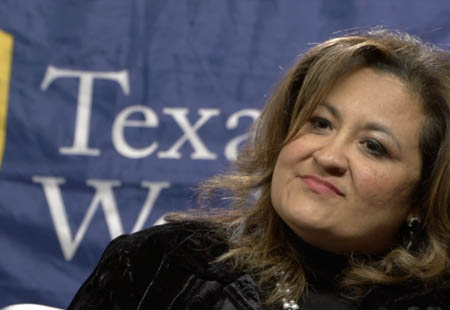Improving the Environment Starts with Early Childhood Education

By incorporating environmental education into existing school curriculum, a Texas Wesleyan professor is trying to help young children develop good habits now so they can promote positive environmental behavior for the future.
Patsy Robles-Goodwin, associate professor of education, received a Sam Taylor Fellowship Award to further the research she has been conducting for the last two years.
"It's a project I've been working on with Keep America Beautiful,” Robles-Goodwin said. "It's basically an environmental education curriculum for young children."
Filling the Gap: Early Childhood Education
Her target audience starts at age 4 and goes through third grade.
“Keep America Beautiful has a very good curriculum for elementary, but not for early childhood, so there was a gap,” she said.
During the process, Robles-Goodwin has developed a component for parents, has revamped curriculum to reflect different aspects of environmental education, and has written a children’s book, The Jalapeno Seed. All of the pieces are geared toward minorities. The book, now offered through Scholastic, tells a story about a community garden.
Robles-Goodwin said the challenge is to reach people who do not place importance on environmental issues.
“The problem is that our minority populations don’t see environmental education as a priority, so children don’t see it modeled at home,” she said. “Then they get to school and the teachers might not emphasize it because they are focusing on the other areas that might be tested, so they aren’t really getting it anywhere.”
Lessons Learned, Lessons Shared
She said reaching children at a young age is important, and they will also bring those lessons home and may encourage their families to follow their lead.
“If you think about environmental education, reusing and recycling are concepts that need to be taught at an early age so they can make an impact on their habits at a later age,” Robles-Goodwin said.
And she is proof that those lessons endure.
“I remember as a young child, I had a really good teacher who taught us not to litter and the importance of not littering,” Robles-Goodwin said. “To this day, if I see someone just throwing a cigarette butt or gum wrapper, it makes me angry because they are littering our environment. My thought was maybe they didn’t learn it or didn’t have a good model because they don’t have good habits,” she said.
“This is an intervention, especially with minority populations living in poverty. This might not be a priority, but at least if it’s addressed, if it’s taught, you’ve planted that seed and then later, those concepts will develop into good habits.”
Read more about Sam Taylor Fellowship recipients.







